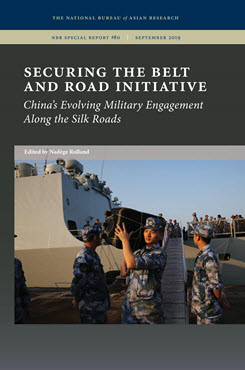The Potential Dual Use of Support Facilities in the Belt and Road Initiative
This essay examines the potential dual use of facilities supporting China’s Belt and Road Initiative (BRI) and considers the implications for the country’s possible expansion of its overseas military presence.
EXECUTIVE SUMMARY
MAIN ARGUMENT
As a significant and far-reaching initiative, BRI promises to strengthen both China’s hard and soft power by increasing Chinese cultural and political influence through economic and trade-related activities. Although the support facilities along the BRI routes have potential military uses, their foremost function is to facilitate the implementation of the initiative and protect Chinese investment. The U.S. and other countries should not view BRI as a source of conflict but work to promote the benefits of the process. BRI itself and the facilities constructed along the routes mean to provide support and contribute to the region rather than present force and threaten the world.
POLICY IMPLICATIONS
- Given that BRI aims at economic interests rather than military expansion, it presents an opportunity for the U.S. and China to enhance communication and cooperation, including on common security threats such as terrorism.
- To understand the ties of BRI facilities to military functions, a mechanism to reduce the geopolitical suspicion and ensure security cooperation between the U.S. and China should be put in place. Such a mechanism should aim to increase interactions between the two sides in order to build confidence and mutual trust and facilitate the peaceful and smooth development of military-to-military relations.
- China and the U.S. will need to develop an effective way of managing competition and conflicting views. Better-coordinated relations will make the Indo-Pacific a safer and more prosperous region.
Guifang (Julia) Xue is a Distinguished Professor in the KoGuan Law School and Director of the Center for Rule of Ocean Law Studies and the Center for Polar and Deep Ocean Development at Shanghai Jiao Tong University.



